#the intersectionality of sexuality and race is HUGE man
Text
Orville peck opened his damn mouth In untucked and I’m reminded why I stopped fuckin with white gays like that lmfao
#just jokes mostly but DAMN#the intersectionality of sexuality and race is HUGE man#rpdr#rpdr s15#rpdr untucked#untucked#rupauls drag race
3 notes
·
View notes
Text

"True emancipation lies in the acceptance of the whole past in deriving strength from all of my roots, in facing up to the degradation as well as the dignity of my ancestors."
As we come to the end of Pride Month 2023, I wanted to devote a little time to the remarkable life of Rev. Anna Pauline "Pauli" Murray --civil rights attorney, Episcopal priest, scholar, and advocate. Born in 1910 Baltimore, their mother tragically died when Murray was only four, and their father succumbed to depression and was later murdered in a mental hospital, and so Murray was raised by an aunt and grandparents, in a time when the threat of violence from the Ku Klux Klan was never too far away. Murray later moved to New York City and graduated from Hunter College in 1933 (as Columbia College did not at the time admit women). Throughout the 1930's Murray grappled with sexual and gender identity --this is in fact when they took on the preferred male-identifying name of "Pauli." A gifted photographer but an even more prolific author, Murray worked as a teacher with the New York City Remedial Reading Project, which offered a great deal of opportunity to write and publish. Among other publications, Pauli's essays and articles about civil rights would regularly appear in The Crisis and in Common Sense (both publications of the NAACP).
Pauli took the unusual (and risky!) step of petitioning to apply to graduate school at the University of North Carolina (current events alert!) --at the time an all-white institution. Such a prospect was considered sufficiently unobtainable that even the NAACP declined to actively support this effort. Pauli had in the meantime cultivated the acquaintance of then-First Lady Eleanor Roosevelt, as well as A. Philip Randolph (see Lesson #68 in this series); associations which would later carry consequences. Pauli is listed as one of the founders of CORE (Congress of Racial Equality), along with Bayard Rustin (see Lesson #5 in this series), and James Farmer (Lesson #17). In 1943 they published a hugely important essay: "Negroes Are Fed Up;" and also a poem, Dark Testament, both of which spoke to the Harlem Race Riot of 1935.
In 1944 Murray graduated from Howard University Law School --while largely identifying as a man but still presenting as a woman, Murray famously coined the expression "Jane Crow" to describe the experience. They then applied to Harvard Law for an advanced degree on a Rosenwald Fellowship but was turned down --reportedly not due to racism (exact same current events alert!) but definitely due to sexism. They instead opted for the University of California Boalt School of Law; their graduate thesis was titled "The Right to Equal Opportunity in Employment." In 1945 Murray was named deputy attorney general for the state of California; the first African American to hold that post. In 1951 Pauli published States' Laws On Race and Color, a book that would later be described by Thurgood Marshall as the "Bible" for civil rights litigation, and was conspicuously referenced during Brown v. Board of Education arguments.
In 1952 the scourge of McCarthyism caught up with Murray and cost them a number of prestigious posts due to affiliation with "radicals" like Marshall, Randolph, and particularly Ms. Roosevelt. Unbowed, Pauli went on to publish the gripping biographical account Proud Shoes, which led in turn to a job offer in the litigation dept. of Paul, Weiss, Rifkin, Wharton, and Garrison (as in, Lloyd), where she would meet lifelong partner Irene Barlow. In 1960 Pauli was appointed by President John F. Kennedy to the Committee on Civil And Political Rights, but the issue of intersectionality was never far from their priorities; notably in 1963 Murray took Bayard Rustin, A. Philip Randolph, and Martin Luther King to task for not including a single woman speaker at the March On Washington. Perhaps the most fascinating coda to this remarkable life comes in 1977, when in the wake of Irene Barlow's passing, Murray became the very first African-American woman Episcopal priest. Pauli died in 1985, having never come out publicly.
For a comprehensive listing of Pauli's writings, visit the Pauli Murray Center for History and Social Justice: https://www.paulimurraycenter.com/paulis-writing
11 notes
·
View notes
Text
For the record, I am a trans woman. I've been going off about it for a little bit but the use of TMA/TME to identify masc-aligned AFAB people is actually pretty shitty and you shouldn't do it. If you think you're doing it in good faith, I have good news for you: You're not actually an asshole yet. Let me explain beneath the Keep Reading(it's gonna be a long one folks).
TMA/TME is meant to be an identifier for people who are "Affected" by Transmisogyny. Now that looks really dang simple on the surface, believe me it does. Let me tell you where it gets complicated.
Transmisogyny is the intersection of being a transgender woman and experiencing misogyny. This is the easy part.
TMA/TME isn't intersectional.
The use of TMA/TMA has lead to a notable increase in the divide between feminine and masculine aligned trans folk.
This distinction is not only too vague, but entirely unhelpful.
Number 1: Every trans person can be affected by every kind of misogyny and misandry. Yes, Misandry is a real thing, it's a word that exists in the dictionary and everything.
Let me give you an example. A TERF might say that a trans man is "just a confused girl". This is actually Misogyny, because the subject that the TERF is basing their belief on is the person having been born female. A TERF might also say "that trans man is going to kill a woman because all that raging testosterone and becoming aligned with men!" This is misandry (this has also been coined transandrophobia) because the TERF is basing their belief on the person transitioning and taking hormones.
So, now do we see? We can do the same with trans women, too. Allow me: "That trans woman is a groomer who wants to turn kids gay." The subject is feminine, and the transness is treated as the problem. Another! "That girly boy is wearing a skirt again, someone should tell him how gay he looks." The subject again is a trans woman, but is being treated as a man. This is misandry.
So, we can see now that the focal point of all this is actually the intent of the transphobe. See, they don't actually care about being right, they care about whatever delusion they've paid into. While it's important to identify transphobia, we can all be affected by it in varied ways that don't actually matter.
Number 2: TMA/TME isn't intersectional. Intersectionality is an analytical framework for understanding how a person's various social and political identities combine to create different modes of discrimination and privilege. Intersectionality identifies multiple factors of advantage and disadvantage.
What the fuck does that even mean, you may be asking. Well, I'll tell you. Basically, every single part of who you are, where you came from, how rich or poor you were, both in wealth and social mobility, race, ethnicity, sex, sexuality, gender, hair color eye color ayyy macarena all lead in to how privileged you are, in terms of a feminist progressive analysis. Basically, "being intersectional" isn't even really a thing? It's just a buzzword people mistakenly throw around when they actually mean inclusive.
If they do mean intersectional, then they are specifically referring to identifying oppression that a person may experience due to - and this is really important - every single part of their background. A trans woman can experience all kinds of oppression and violence, for a multitude of reasons. A trans man can experience very similar kinds of oppression. There are no single words, no matter how many prefixes and suffixes you butcher to get it to look pretty, it's not worth the scrabble points to try and nail down a single comment by transphobes as being one hyper-specific thing.
Number 3: This is the big one, and the reason I'm making this post. This Ask/Answer is a huge, HUGE problem. Implying that trans men, mascs, or AFAB enbies cannot or will not ally with trans women, or that they actively hate cis and trans women or AMAB, is not only a willfully ignorant point of view, but is actively dangerous to trans people as a whole, not to mention the progression of trans rights.
The thought that trans men are dangerous men, changing the words a bit and using TME instead, is actually transphobic. You are being "phobic" against some kind of "trans" person. See that? I'm being literal right here, too. If you saw the inverse of this and don't label it as transmisogyny, then you're either lying to yourself, or you don't understand anything about homophobia, transphobia, or possibly any language on Earth.
(side note, transphobia and homophobia isn't a literal fear of those stated groups, it's actually closer to a mass hysteria led from a fear of the unknown, xenophobia, and the very human habit to be aggressive towards scary things as a defense mechanism, wrapped up tightly in complex emotions because this defense mechanism was meant for when we were afraid of being eaten by predators in our caves.)
The point anyway, is that I've seen a large portion of the trans community outright denying that trans men can even have their own special kind of transphobia, which is untrue(see point 1), and using TMA/TME language to get around outright saying that transmasculine people are, in their minds, equivalent to the oppressive patriarchy. Please talk to more trans people. Everyone is an asshole in their 20s, I sure as fuck was.
Number 4: Ok so TMA/TME doesn't actually define anyone. Like, it can't. The only people who can literally be TME, is the known ruling class of a society that makes and enforces laws.
Here's the fuckin' thing guys, gals, and nonbinary pals: TransMisogyny, as stated, affects anyone that could be perceived as Feminine(the gyny part), whether they actually are or aren't.
Do you know what we base hate crime on, in the US at least? Intent. If someone attacks, say, a dark skinned woman because they think she's black, but it turns out she just has a really dark spray tan, or is Indian, or a Pacific Islander, or South American or it was really dark out, or... it doesn't matter. The intent is what matters.
You see, in this example, the woman was attacked because someone thought she was black and attacked her because of that false idea. Full stop. If a man attacks you, a trans woman, because he thinks you're "just a man with tits", that's a transphobic attack, full stop. That's where we stop caring about what kind of attack and what you actually looked like and deal with the intent of the attacker.
So, say we want to actually identify that intent and label it. IDK, for statistics or to relate to others or whatever. You can define that attack in whatever way you want from there, I guess, but if the attacker thinks "this man needs to be taught a lesson" then the attack was actually that the man intended to attack a "man", despite that not being how you identify. The overall attack is still transphobic, but comes from a place of misandry/androphobia. This comes down to a whole other list of things I'll get character limited trying to explain, but the intent is what defines an act. That's why Attempted Murder is a crime. Just because someone doesn't finish the job, doesn't mean go scot free; the intent was to kill.
___________
Let me finish with a plea. Please stop trying to make TMA/TME work. The only thing it actually does for the trans community is waste time, waste energy, and gets us to use transphobic and exclusive language. If you still think I'm wrong, go spend some time researching what intersectionality gets wrong. Spend time thinking of things that can help us all retain our rights and fight for the ones we've lost or never had.
Yelling at each other about who is more oppressed right now is by far the most idiotic thing we could be doing as a community. It's like playing chess and instead of trying to take pieces from your opponent, you knock some of your own pieces down and remove them from the board. You're just putting them in a better position to beat you. When you're down to just one pawn, your king and queen, and maybe a rook against a full board, you might as well just surrender.
If you want to be another Blair White, please get the fuck out, and stay the fuck away from pride you dumb piece of inflammatory shit. If you read this entire post and you still think it's a good idea to hate on "the other side of the spectrum" or that trans people of a different flavor are less oppressed, less subject to oppression, or anything of that nature, I invite you to please block me, and never talk to a single trans person for as long as you may live.
We don't need you. Stop holding us back.
#trans#trans rights#trans rights are human rights#intersectionality#intersectional politics#discourse#terfs are poisoning the well and your mind#oppression is not a laserbeam#oppression is a hand grenade
7 notes
·
View notes
Video
youtube
way to gaslight your own fans on the annabeth racechange in adaption
comments on youtube
I’m so happy you’re talking about this, Rippa. I read Percy Jackson in the 5th grade. It spoke to me, it influenced me, and I grew up idolizing Rick Riordan. I read his statement yesterday and my heart dropped into my stomach. I couldn’t believe this guy who had been such a great childhood inspiration had just basically called me racist for wanting the character to look how he told me she looked.
I really don’t understand why having an actor that actually looks like the character they’re portraying is such a bad thing to these people, makes me even more surprised that Nami wasn’t race swapped in the live action One Piece show, and she’s a ginger.
The thing is that race swaping a character for the sake of inclusion is insulting to both ethnicities involved. They're basically saying that the original white characters are either worthless, bad or defective and they need to change; and that the black race being use as a substitute doesn't have original heroes or historical characters worth exploring and that the only way for them to be worthy of attention is to give them the character/positions of previously established white characters.
I am beyond happy that you're tackling this, Eric. I've been a Percy Jackson fan since 6th grade. This is criminal like you wouldn't believe, this is not Annabeth. Annabeth is white with blonde hair and stormy grey eyes, a daughter of Athena. She ain't black and never will be, I've been reading Rick's books for years and this feels terrible. I know he's been going woke in his latest series, but I truly thought that's PJO fans were getting the show we deserved. Never again, I'm not buying any other book from this man ever again. Not even the new Nico book that he's writing.Show less
Rick is such a liar. On the one hand he admits that he was beholden to Disney’s hiring practices which is nothing more than a racial and sexual quota system. On the other he suggests it was an open casting and they were going to hire the best person for the job regardless of their intersectionality traits. Sorry, but you can’t have both. Unless of course he is suggesting that after the year-long auditioning process there was a possibility he was going to cast three blonde haired blue-eyed actors in the three main roles. I’m fairly sure that was an impossibility.Show less
The thing that's crazy is that there are characters of different races in the story. Especially in the sequel series. Niko and Bianca are from the first story and Leo, Hazel, Frank, and Piper are from the sequel series. All of them are major characters in the story
My best friend is a huge fan of the books and was looking forward to seeing this series. But not anymore, because of the casting of Annabeth. She loves those books, but now believes that the author is a sellout. Also, if the show makes Athena black, I'm gonna be pissed.
Basically any white character (or even historical real life person) is free game to be changed for whatever reason. But any POC character is absolutely never ever allowed to be changed in any way, ever.
I have seen people try to defend changing annabeths race by going annabeths race didnt have anything to do with her story so its okay to change it and have her played by a black actor when would that logic apply to a character from a book series who was black but then in the adaption was played by a white actor if you would ocmplain you have no right to complain about someone getting upset if say a character who was white in the original story was played by a black actor ( the claim that they were just looking for the best available actor is bs for they wouldnt ever do this in reverse where was say a character who was black in the books but then they had a white guy play him even if he was better than the black guy they would pick the black guy
no diversity/representation doesnt make it different
( its not different
lets be real here if say a black person and a white person tried to audition for blade ( who in the comics isblack) the black person should get the role ( I doubt that they would even accept/allow any white person to audition for the role
I never saw leah act but it really doesnt matter if she is a good actress or not the fact is annabeth is white she is black the actress should match annabeths features so it doesnt matter whether or not leah is a good actress she shouldnt play annabeth just like a white person shouldnt play blade(Eric Cross Brooks) from marvel comics regardless of whether or not he is a good actor ) no one would use the what if he was the best actor for the job argument for a case like that and the attempts to justify it by going but there arent many black characters makes me roll my eyes it doesnt matter ( make your own you dont get to complain about a character being whitewashed then claim racism if someone isnt okay with blackwashing ( one bad justificationto the other to misusing the term racism ) I wouldnt be okay with miles morales being played by a white person ) we both know that the race change isnt because she is best actress for the job its because they had a problem with the fact that keeping it accurate to the races meaning the main characters would mostly be white ( which isnt a problem unless you would have a problem with most of the main cast being nonwhite)
7 notes
·
View notes
Note
Hi Bree! My name’s Chris. I’m from eastern Massachusetts and I’m a huge fan of your podcast! I was wondering if you might have any advice for me.
So I’m a gay man and have always been interested in witchcraft. I’ve been studying folklore, witchcraft, and magic since I was a kid. I really want to start practicing and take steps to incorporate witchcraft and magic into my life! I’ve been having some problems, however, coming to terms with some of the heteronormative aspects of Wicca. Also, I’m trying to honor and be respectful of traditions that belong primarily to women. As a cisgender man, I want to find my place in the world of witchcraft without being appropriative or disrespectful.
So my question is this: do you have any advice (or know of any material) about the intersectionality of witchcraft, queerness, and maleness?
If you don’t have time to answer this , I completely understand! I’m a huge fan of your podcast and your work. Thanks for taking the time to read! I truly appreciate you!
Hi Chris! I'm so glad you're enjoying the podcast and I totally hear you on struggling to find the intersectional practices that fit your own needs. As a cisgender woman who is waving a number of queer flags and really not interested in connecting my witchcraft with my womb, I have some of the same problems with the rhetoric pervading certain modern witchcraft spaces.
The really good news is that there are more ways of being a witch than just following the path of Wicca. Many of us create our own paths if we can't find a readymade one that suits.
It's easy to feel like witchcraft is just for the AFAB ladies, since there are certainly a lot of us in the public-facing spaces associated with magic. However, there is plenty of room for people of all genders in the community and for all of us queer witches as well.
Witchcraft doesn't "belong" to women or to any one group in particular. It is a craft and thus is open to anyone who wants to try it. A witch is someone who chooses to practice witchcraft, and there is no requirement for admission based on gender, presentation, romantic or sexual preference, race, ethnicity, religion, location, living situation, preferred aesthetic, or socio-economic status.
I would recommend you look up my podcast senpai @traegorn for more information, since their experience with being a nonbinary Wiccan has produced some very interesting perspectives. (Also their show, BS-Free Witchcraft, is really awesome and if you like Hex Positive, you'll enjoy that too!)
Also, definitely check out the back catalog of the Head On Fire podcast and look up the host, Don Martin, on social media. He has written an absolutely wonderful book, The Dabbler's Guide to Witchcraft, and is also a gay man existing in pagan spaces. I think his story will resonate with you. (He's also a perfectly lovely person!)
The PBW Witch Shop carries a number of titles on non-Wiccan and queer witchcraft practices that I think you will find useful. There are also lots of queer witches and male witches here on tumblr who are worth talking to. (And I invite you all to sound off in the comments! Let's make Chris feel welcome!)
Whatever you might see on social media, please know that there is a place for you in this community and you are WELCOME here. Hope this helps!
#meepers-elizabeth#witchcraft#witchblr#pagan#queer witchcraft#male witch#Bree answers your inquiries
40 notes
·
View notes
Note
there is a follow-up on the op's tumblr to the racism post you reblogged that i think is just as important. it talks about the emotional labor of educating other fans. especially significant because the original anon said "but you can't tell me they don't handle their black characters well" which is not a good look at all. something that @septiembur & you mention having to do in your workplaces. sorry for that, btw.
Thanks, Anon! (x)
So that everyone who reads my blog is aware, I personally don’t mind discussing race here to the extent that I am able (I’m fairly educated on the topic in general – in my country there is a huge emphasis on race at every single level of education and it was especially a huge part of my tertiary education – but as I’m not American, I’m not as up on everything pertaining to black Americans and Latinx cultures and specific struggles) because I find it better than never having the discussions to begin with. Dean’s obsession with Rio and its sexual slant (x, x and x) was bothering me a lot, for example, and there wasn’t anyone talking about it, so I was glad to bring it up and see if others resonated with how uncomfortable I was.
I totally agree that that burden is unfair and that it’s not POC’s responsibility to educate anyone on the basics. I do hope that that doesn’t limit the discussions about the race relations on this show, though, because I do already find it fairly minimal in this fandom – I don’t know if that’s a consequence of most of the BNFs being seemingly white, or just a direct result of the show’s failure to meaningfully engage with intersectionality.
I do want to speak to the burden in the workplace, though, because I’ve seen the argument from some people that criticising the way race is handled on the show is an erasure of the writers of colour on the writing team.
First, for context, I work in a writer’s room, of sorts. My brand is an industry leader in a white-dominated space and we make decisions that directly impact the industry – think the judges for the Oscars deciding which movies get nominated, making the rules that determine who will qualify and who will win, etc. Those are the kinds of decisions we make and the massive ramifications that follow.
It’s a huge responsibility – every room I sit in is 90% white. My boss is white, their boss is white, their boss is white and their boss is white.
There are three more brown people on my team vs 9 white people. Based on my position (that I’ve worked hard over years to attain), my opinion carries a fair amount of weight in the room and yet, still, ultimately I have no decision-making power. (Remember all those white bosses?) The best I can do is raise issues relating to diversity and hope enough of the white people in the room will deign to agree enough that it will be taken into account when it’s moved further up the white chain. When they make decisions I don’t agree with, I’m grateful for there being a public outcry about its racism, because I did what I could within the confines of remaining employed. Furthermore, it’s up to consumers to recognise what’s wrong. So people saying/implying “Manny/the writers obviously agree with what the show does” is tiring to me. If there are issues, those people would find themselves in very hot water if they spoke out about what actually happens behind the scenes.
Secondly, just because there are POC in a group of people doesn’t necessarily mean they’re advocates. Those three other brown people I mentioned? They barely say a word about race in any of our meetings. It’s something that means a lot to me, so I’m the one constantly feeling the weight of the responsibility we have. But they’re just there for their paycheck. And you know what? That’s cool, too. Just like it’s not our responsibility to educate people, it’s also not our responsibility to have to advocate tirelessly (and it is exhausting) just for white people to acknowledge their privilege, especially when we’re in a professional setting and in an industry where that should be basic homework before we even get into the room. Every decision should include an intersectional discussion and it never does unless I bring it up. Again, that is so exhausting, not to mention demoralising.
So to look at a group of people and just based off the colour of their skins assume that the product they’re making is somehow more noble is BS to me. I hope nobody ever thinks a decision my brand makes is racist, sees a team photo with a few brown people and goes ‘Oh, there are brown people so obviously this isn’t actually racist’. NO! Please, call out how racist it is because I can’t do so publicly! The very thought of someone using the colour of my skin to excuse something terrible The White Man I work for has done nauseates me. And it’s especially bad because I’m contractually obligated not to say anything against it.
Ultimately we don’t know whether the writers or actors of colour do in fact face these same issues. But I do know that if any of them do, it must’ve been a world of shit to deal with the horror of 2x13 (how that went down definitely would’ve been a high-level, and thus likely white-made, decision) and its problems just being buckled down on for S3. So to excuse the show by pointing out POC’s existence or seeming agreement with it isn’t a valid argument to me.
TLDR: If you don’t know the emotional burden the POC behind the scenes are carrying then don’t use them as a defence just because you like the end product.
#Anonymous#NBC Good Girls#thank you so much Anon you're incredibly sweet!#it is tough and I send my love to everyone behind the scenes of this show who may feel similarly
19 notes
·
View notes
Note
Do you think white people can't suffer from positive or negative stereotyping based on skin color? Or I guess is the majority ethnicity impossible to suffer from racism? Example, obviously in places like Japan, Mexico, or India white people are not the majority. So it's possible to be racist to them. However, in places like the USA, Canada, and Britain you can't be racist to white people since they are the majority? I'm half white and half Japanese. Where do I fall into that?
I think anyone, anywhere, can deal with bigotry. Individual, self-contained experiences where someone reacts negatively (or positively in the form of bias) based on another’s race, ethnicity, or culture. So yeah, that would be the Japanese server refusing to serve the white American. Or giving preference to a black man over a Chinese man. Anyone can be put into a situation where their differences are used against them.
Racism, however, is systematic. Racism is something built into the foundation of a society, the ways in which resources, opportunities, and power are distributed across all aspects of life: from that encounter in the restaurant all the way through to the chances of you securing a bank loan, or getting hired for a job, or being more likely to be arrested, or shot, or the fact that your family has no access to generational wealth due to the continued impact of slavery, etc. Bigotry and racism are obviously linked---each helps to enforce the other---but it’s still an important distinction. As a white person, I could theoretically find myself in a situation where a black person antagonizes me based on the color of my skin. That would suck. But in the U.S. it’s also just one experience that I get to separate the rest of my life from. I’m still benefiting (in huge HUGE ways) from a system that has prioritized me for hundreds of years. One individual could be mean to me, but that’s not the same as an entire society reinforcing, in a thousand different ways, that I’m somehow superior to others.
And yeah, intersectionality is a thing. Your experience with privilege/racism as someone half white and half Japanese is different from someone who is fully white or fully Japanese. It depends on where you’re living. What your class is. Your sexuality. Whether you’re disabled. Whether you can “pass” as one or the other, etc. No one has a clear cut identity with equally clear cut problems or privileges. My friend, for example, is chronically ill. She deals with a lot of ableism---another systematic problem---tied up with misogyny (ditto), but she’s also white and comes from a very rich family, two things that heavily impact those struggles. Though disabled, she’s much more likely to thrive and survive as a white person with money. It would be different for a disabled black woman who’s poor---my friend is literally more likely to get the medical help she needs from doctors because no one is dismissing her due to the color of her skin, or her weight, or her bank account. Intersectionality is what everyone needs to remember and weigh whenever we talk about privilege, as well as which scenarios are systematic vs. horrible, but ultimately one-off encounters. Are you dealing with shit because of this individual, or because society is literally built around painting you as inferior, something the individual has picked up on and is exploiting? The white kid bullied at school because their attacker just finds them to be an easy target is a different situation than a black kid bullied because they’re black, a queer kid bullied because they’re queer, etc.
22 notes
·
View notes
Text
Film Review of Unsettled: Seeking Refuge in America by Katya
Unsettled: Seeking Refuge in America is an eye-opening and heartbreaking documentary about a group of LGBTQ refugees seeking a safe new beginning in the United States. Directed by Tom Shepard, this film follows the lives of four individuals as they flee their home countries in the hopes of finding security and acceptance elsewhere. Subhi, a young man from Syria, is the first person that we are introduced to. He shares his story of facing homophobic discrimination from both his family and fellow neighbours, including having rocks thrown at him on the street and a traumatic experience of physical violence with his own father. This incident gave him a very serious head injury and led him to spend hours in the hospital. Next, we are introduced to Mari and Cheyenne, a lesbian couple from Angola who were also rejected and persecuted from their families and fellow citizens. They share stories of having to meet up in secrecy in order to avoid harassment, as well as awful events that they have had to endure, including the murder of their dog and deliberate food poisoning from one of their mothers simply because of their lesbian relationship. Lastly, we meet Junior, a gender non-conforming individual from Congo whose own mother advocates for the murder of LGBTQ individuals. All four of these strong individuals decide to flee their countries and seek refuge in San Francisco, which proves to be challenging for all of them.
Before getting into an analysis of this film, it is important to consider the concept of intersectionality. This term was first coined by Kimberlé Crenshaw in 1989 to demonstrate the multifaceted oppression experienced by Black women. Using an intersectional lens when discussing this documentary is crucial because it leads us to understand how systems of oppression such as race, class, gender, and sexuality work together in shaping unique experiences for different groups of individuals (Kaufman). In this blog post, I will be discussing the interlocking systems of oppression that affect the LGBTQ refugees in this film, and why it is important to acknowledge these in order to understand and properly admire their courage and resilience.
Throughout the film, all four refugees face hurdles as they endeavor to build new lives in an unfamiliar country. Mari and Cheyenne struggle to find an attorney to help them gain refugee status in the United States, and the fact that this process takes months adds stress to an already difficult situation. Subhi faces a challenging decision when he is asked to speak openly about his experiences with homophobic discrimination in Syria in front of the UN Security Council; something which could potentially put his safety at risk. Junior sadly experiences the most difficulties of the group, facing poverty, homelessness, loneliness, depression and more. They struggle to find adequate part-time jobs due to their language barrier and lack of qualifications, while simultaneously making sense of their gender non-conformance and their place in this new country. Using an intersectional lens while viewing this film, we can see that all four of these refugees are oppressed on multiple different levels: race, gender, class, sexual orientation and mental health. To make their situations even more difficult, the election of Donald Trump as president in 2016 brought up a new risk of being deported as immigrants, as well as an increase of racism, sexism and homophobia in the country. As stated by Audre Lorde, “we have, built into all of us, old blueprints of expectation and response, old structures of oppression, and these must be altered at the same time as we alter the living conditions which are a result of those structures” (Lorde 123). This task is a challenging one: changing the norms and expectations of society while concurrently dealing with the oppressive consequences of the existing ones. Now with an imbecile of a president who encourages discriminatory behaviour, this is even more of a difficult task. And to make this worse? The people with privilege have nothing to gain from making these changes, so it is up to those in marginalized positions to advocate for their own rights (Lorde 114). This is demonstrated in the film through many examples: Subhi making his story public in order to pave the way for and support other LGBTQ refugees, Mari and Cheyenne persisting through the long wait and emotional burden to gain refugee status, and Junior staying true to themself even with mental health issues and a lack of support systems.
The fact that these four refugees were able to remain hopeful throughout such an emotionally taxing journey is a testament to their strength and determination. Something that really stayed with me from this film was the fact that these four individuals were clearly doing nothing wrong, and how awful is it that there are countries on this planet that consider a state of love and happiness to be illegal. Mari and Cheyenne are simply two women who are madly in love with each other. Subhi is like any other male on this Earth looking to find love, he just happens to look for this love with men rather than women. Junior does not feel like they identify with the gender they were assigned at birth, and they are harming absolutely nobody by feeling and identifying this way. While I knew that certain places around the world were less accepting of LGBTQ individuals, I did not realize to what extend this discrimination reached. Taking away a person’s life for the sole reason of who they choose to love is absolutely unacceptable, and we are lucky to have individuals like these four LGBTQ refugees who successfully fight for justice in our world.
On a last note, it is important to acknowledge the multiple American allies who assisted these refugees when they arrived in the United States. Offering support to these vulnerable people plays makes a huge difference as they settle into a new country without family or friends to lean on. Allies are members of dominant groups who use their privilege to assist those in marginalized positions fight for social justice (Rostosky 331). In the case of this documentary, the allies were mainly White, middle-class, heterosexual American adults. I found it inspiring watching these Americans stand in solidarity with the LGBTQ refugees, as it showed me the significance that social support can have in the advocacy for equal rights. Overall, this documentary had a very big impact on me. It taught me about serious social issues that I was not fully aware of while demonstrating that there is hope for positive change in our world.
(Work count: 1093)
Works Cited
Kaufman, Peter. “Intersectionality for Beginners.” Everyday Sociology Blog, W. W. Norton, 23 Apr. 2018, www.everydaysociologyblog.com/2018/04/intersectionality-for-beginners.html#more.
Lorde, Audre. “Age, Race, Class, and Sex: Women Redefining Difference.” Sister Outsider: Essays and Speeches, 1984, pp. 114–123., https://bltc.alexanderstreet.com/cgi-bin/BLTC/hub.py?type=getdoc&docid=S8108-D012.
Rostosky, Sharon, et al. “Positive Aspects of Being a Heterosexual Ally to Lesbian, Gay, Bisexual and Transgender (LGBT) People.” American Journal of Orthopsychiatry, vol. 85, no. 4, July 2015, pp. 331–331, http://search.proquest.com/docview/1735650833/.
3 notes
·
View notes
Text
10 Tips on Writing Asexuality
It’s been a long, long twelve years since I first realized I was asexual.
I’m one of the fortunate ones that realized my lesser-known orientation without having to go through years of confusion, uncertainty, and experimentation (because while some might enjoy that, I can pretty much guarantee I wouldn’t have). I was fourteen when I first came across the term and thought it might apply to me, and shortly before I turned fifteen, I officially claimed it as my own.
A lot has changed since then. When I first came out, there was almost nothing out there for asexuals. There was the AVEN website, a few blog posts, and even fewer YouTube videos, but the word basically didn’t exist in common knowledge, even among people who identified as LGBTQ+. Any fiction that included ace characters was almost exclusively unconfirmed, and left up to fans to compile lists of evidence that a certain character was probably asexual—which was usually ignored by the majority of fans, who wanted to see the character in sexual situations, and often later brushed aside by the creators.
Now, asexuality is more and more recognized by the popular media and the general public. Visibility is still lacking, but we’re recognized by major LGBTQ+ organizations, represented (to a small extent) in Pride events, and increasingly represented as characters in TV shows, books, movies, etc. I’ve even found random strangers recognizing the asexual pride button on my purse—and I live in the Bible Belt.
And it’s a great feeling. Every time I see another ace character in popular media, I get a little burst of joy to see someone like me—at least in this one way, if not in others. I’m especially glad to see good representation, especially after years of representation that was questionable at best (Sherlock still comes to mind) and harmful at worst (does anyone remember that episode of House?). I’m also thrilled to see that non-asexual people are really interested in doing ace representation right and are reaching out to asexuals to get their take on what they want to see.
So I thought I would include my perspective on writing asexual characters, because frankly, everyone’s experience and viewpoint is a little difference, and I hope this conversation continues with as many diverse voices as possible.
I hope these tips are helpful and make you at least a little more confident about including ace characters in your own work!
1. Watch out for stereotypes, but don’t throw them out the window. This is almost certainly confusing, so let me explain: I often see people try so hard to avoid stereotypical traits in asexual characters that they forget that aces are incredibly diverse. Yes, not all asexuals are aromantic, but some are. Yes, not all asexuals hate close physical contact, but some do. Yes, not all asexuals are shy or socially awkward, but some are. Yes, not all asexuals have seventeen cats, but some do. Yes, not all asexuals are repulsed by sex, but some are. And the list goes on. You should absolutely be aware if a character trait you’ve chosen is stereotypical, but that doesn’t necessarily mean you should avoid it, especially if you have more than one asexual character. Be aware of it, but focus on writing a well-rounded, realistic character over avoiding every stereotype in the book. No matter what trait it is, if you’re writing it well, chances are good there’s an asexual out there who will empathize with it.
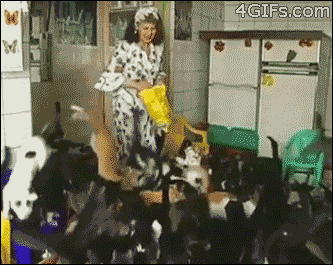
2. Keep intersectionality in mind. Though, as I said, I’m absolutely thrilled to see more ace characters in media, I know there’s still a desperate need for more diverse examples of asexuality, especially those that take into account how people of different races, genders, abilities, national origins, religions, and ages—among other things—experience their asexuality. A man does not experience asexuality the same as a woman. A white person does not experience asexuality the same as people of other races—I can’t list them all here, but from what I’ve seen, every racial identity comes with stereotypes and prejudices that interact with asexuality differently. Someone’s religion might affect how they view their asexuality or how they’re viewed by their religious community, and someone’s asexuality might be brushed aside if they’re “too young,” “too old,” or have a disability. Personally, I am an able-bodied American white woman, so I can’t say a lot about this specifically, but please do your research on this aspect of their experience just like you would any other. It might not be what you’re expecting.
3. Don’t make asexuality their defining trait. Unless someone is an asexual activist (and these are valid characters!), and even if they are, they’ve probably got quite a few aspects of their life that have nothing to do with their orientation. An asexual doesn’t spend all day every day thinking about the fact that they don’t experience sexual attraction. It is, after all, the lack of an experience rather than the presence of one, and is therefore less likely to draw their attention at any given moment. Contrary to some people’s belief, asexuals don’t necessarily have “oodles of free time” since they don’t spend it thinking about sex—but they do have other things that interest them. They are full human beings, just as complex as anyone of any other orientation, and as a certain lesbian character from a TV show I’m fond of once said, “My sexuality is not the most interesting thing about me.”
4. Remember that there are many ways to “humanize” a character without giving them a love interest. This is one of those topics that isn’t exclusive to stories with asexual characters, but is still relevant to them. All too often, I’ve seen characters who seem cold, inhuman, or heartless made more “human” by falling in love, as if the ability to feel romantic and/or sexual attraction is what makes them “not a machine.” This idea goes back at least a century, to Arthur Conan Doyle stating that Sherlock Holmes was “as human as a Babbage’s calculating machine, and just as likely to fall in love.”
Let me make this very clear: a character is not inhuman because they don’t feel romantic or sexual love, and a character is not especially human simply because they do feel these things. Even if your character is not asexual, please don’t make the one thing that “humanizes” them be romantic/sexual attraction—and in the case of asexual characters, please don’t try to “humanize” them by giving them a romantic interest. Yes, asexuals can be romantic, aromantic, or anything in between, but romantic asexuals are no more human than aromantics. There are so many other ways to humanize someone: strong platonic attachment, caring for animals, passion for a social cause, love for the environment, and countless other possibilities. Obviously it’s completely okay for romantic or sexual attraction to be one of these things: but please don’t make it the only one.
5. Think about how they discovered their orientation. Even if your character has known they’re asexual for 50+ years, unless your story takes place in some great fictional society where non-straight orientations are openly welcomed and accepted as normal, how they figured out their asexuality is probably going to affect them—as well as when they figured it out. I discovered my own asexuality in my early teens, but I’ve seen people who didn’t discover the term until they were senior citizens, having felt alone and out of place their entire lives with no idea why. If they discovered it recently, especially after a long time of not understanding themself, they might still be figuring out exactly how they define their own identity.
6. Consider asexuality in the context of your character’s environment. Small-scale and large-scale. Where your character grows up and what environment they live in during the story makes a huge difference on how their asexuality is expressed, and this is true whether you’re writing historical fiction (where views of and experiences in asexuality are obviously very different) or whether you’re deciding if your character’s family is supportive. There’s an enormous spectrum of variation in this, so I won’t even try to go into the details, but keep in mind that whether your character is out, what sort of prejudice they face, and how they feel about their own orientation will all be greatly affected by the world they live in and the people they know.
7. Asexuality is not an illness—but that doesn’t mean life experiences can’t affect it. Remember the House episode I mentioned? For those that never saw it, the patient-of-the-day was an apparently ace woman, married to an apparently ace man, who goes to see Dr. House. House is convinced that no human could possibly be asexual, despite another character, Wilson, mentioning research validating the orientation. In the end, House discovers that the man has a brain tumor suppressing his sex drive and the woman has been faking her orientation to stay with her husband.

This is … extremely problematic for what I hope are obvious reasons. This led to a lot of families and friends of asexuals, who had previously been supportive, suddenly worrying that their loved ones had brain tumors. Obviously, if there is a genuine reason to suspect a medical issue (such as a sudden disappearance of sexual interest when it existed before), one should consult a doctor, but this episode presented only two cases of asexuality, one of which was “just an illness” and another of which was a lie. This led viewers to the same conclusion that House himself reached: that no healthy human being could possibly be asexual.
This is a very bad example of asexual representation, but it’s also worth mentioning that there are asexuals who view their asexuality as being affected by their life experiences, a specific diagnosis, or even a chronic illness, and as long as you do research beforehand into what sorts of experiences can contribute to someone’s identity, and don’t try to “cure” that character’s asexuality as part of your story, this is okay. Ideally, include more than one ace character as a way to make it clear to your readers that experiences differ, and that all roads to finding one’s identity are valid. Sexual orientation is unlikely to change and can never be “cured”—since it’s not an illness in itself—but that doesn’t mean the environment can’t affect it.
8. Exploration and questioning is okay. I also want to emphasize that it is completely okay to have a character that is questioning their sexuality, and either later decides that they are ace or decides that they are not ace. As long as asexuality is treated as a genuine orientation and not just a “symptom”—and again, ideally, more than one ace character is included at least briefly—a character realizing that asexuality isn’t the right identity for them, or only realizing such after exploring other identities, is fine. As mentioned above, the House episode did this very wrong, but as long as you are not “disproving” the asexuality of the only two ace characters in the show—especially when it’s disproved by a guy who believes asexuality is impossible/inhuman—and you are sensitive and respectful, I think this can be done without causing offense.
9. Remember that ace views of attraction can be different than non-ace views. Much of society (at least Western society) seems to lump all attraction into one form: sexual and romantic combined. As asexuality gained more visibility, the idea of romantic and sexual attraction existing independently became more popular. On top of this, other types of attraction got more recognition: for instance, strong platonic attraction (like a non-romantic crush), sensual attraction (the desire for non-sexual physical contact), and aesthetic attraction (the attraction to the physical appearance of a person or object, but no desire for interaction). Note that this isn’t an asexual-exclusive experience, and a story definitely doesn’t need ace characters to explore these topics: many non-aces do experience these varied types of attraction, but haven’t had as much context to recognize or explore them. Asexuality, in recognizing that there are human beings with no sexual attraction, helped open the door to these ideas, but they have always existed. And even though this doesn’t necessarily relate to ace characters, I think it will go a long way to helping asexual experiences of attraction be better accepted.
10. Asexuality is a spectrum, and it’s more than okay to write all along it! I’ve been referring to the most general idea of “asexuality” in this post—probably because I fall completely in that category—but asexuality isn’t as simple as that, and the line between “ace” and “non-ace” isn’t so cut and dry. “Grey-asexuals” are a big part of the ace community, and their experience is both similar to and different from people who just identify as “asexual.” There are also demi-sexuals, who feel sexually attracted only once a strong emotional connection has been formed—and yes, these people deal with a lot of the same issues as asexuals, though of course, many parts of their experience are also unique. Keep this spectrum in mind as you’re writing your characters, even if you do end up writing someone who just identifies as “asexual.” It’s important to remember that the spectrum exists, if only because it’s a reminder that all of us, ace, non-ace, or anywhere in between, are part of the same immensely diverse gradient, instead of simply black and white.
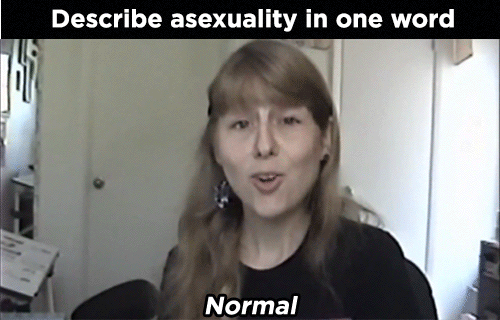
Original post on my website.
5 notes
·
View notes
Text
Women in the music industry: Intersectionality, double standards, feminism, and more.
What is intersectionality?
Intersectionality is a term that came about in the late 1980s when Kimberle Crenshaw was searching for a word to describe the discrimination that often occurs when different social factors, such as race, gender, sexual orientation, and age overlap with each other (Dillbray and Edwards). While Crenshaw was originally attempting to describe the discrimination that black women face all too often, the term has been expanded to include anyone and everyone who experiences discrimination as a result of a combination of social aspects. In fact, women in the music industry have been viewed as less than equal to their male counterparts, time and time again, especially in recent years. This has prompted several female musicians to speak out and take a stand for themselves and their fellow artists.
This blog will take you on a journey through some recent examples in popular music where women have been overshadowed, told to “step up,” and when they have spoken out on topics such as gender inequality, double standards, feminism, and intersectionality.
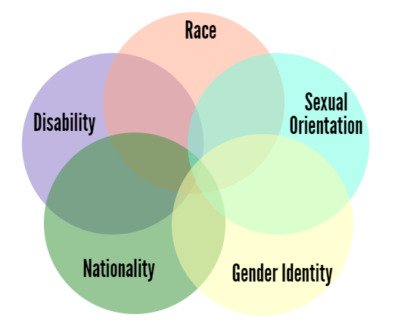
Chart: yw Boston
youtube
Nicki Minaj calls out the 2015 MTV Video Music Awards
It would not be an award show without some controversy which is what came with the 2015 MTV Video Music Awards when Nicki Minaj, rightfully, expressed her disappointment with the nominations. Her video for her hit song “Anaconda” broke records when it got 19.6 million views in just one day yet failed to be recognized for its choreography and overall artistic vision as video of the year (Mei). “Anaconda” without a doubt had an impact in 2014 as one of the most watched and discussed videos of the year. Minaj took to Twitter to express her disappointment, saying “When the ‘other’ girls drop a video that breaks records and impacts culture they get that nomination.,” possibly referring to Miley Cyrus’ video for “Wrecking Ball” which had previously held the record for most views in one day. Minaj also tweeted “If your video celebrates women with very slim bodies, you will be nominated for vid of the year” likely referring to Taylor Swift’s video for “Bad Blood” which was nominated in 2015, although she said she was not referring to Swift. It turns out that Minaj was subtly calling out racism within the music industry and her disappointment came when past videos that were deemed controversial (Brittney Spears’ “Toxic,” Emily Ratajkowski in Robin Thicke’s “Blurred Lines,” Miley Cyrus’ “Wrecking Ball”) were all labeled “impactful,” praised, or awarded. Minaj’s on the other hand was without a doubt impactful but not recognized as such. The major difference between Spears, Ratajkowski, Cyrus, and Minaj is that the former consists of white female bodies while the latter is a rapper who just so happens to be a woman of color. Unfortunately, Minaj was experiencing intersectionality as a woman of color. Simply just being a Black woman is what put Minaj at a disadvantage in this situation as well as others. Race and gender overlap here, and played a huge role in Minaj not being recognized while other female artists like Brittney Spears and Miley Cyrus can create controversial videos but are praised as white women.
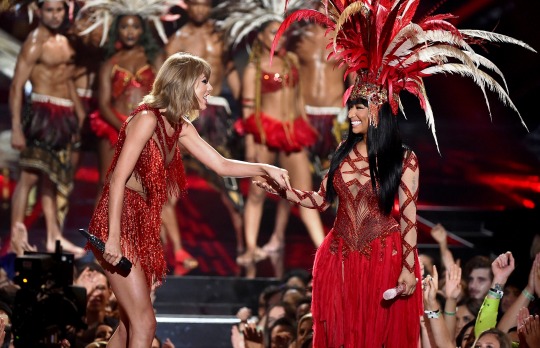
Photo: Kevin Winter/MTV1415/Getty Images For MTV
Few female artists insight at the 2018 Grammy Awards
The 2018 Grammy Awards ceremony was a controversial night as female musicians were not honored like their male counterparts were. Of the eighty-four awards handed out, only eleven were awarded to women and some questioned the winners (Zielinski). Many were upset when Ed Sheeran won for Best Pop Solo Performance for his hit song “Shape of You” when his competition were all females and included powerful songs such as Kesha’s “Praying” and Lady Gaga’s “Million Reasons.” Another big criticism of the ceremony was all of the nominees for one of the top categories, Album of the Year, were all male except for Lorde. However, the bigger controversy surrounding Lorde and this category is that all of the Album of the Year nominees were allowed to perform solo while Lorde was only offered to be apart of a tribute performance. Many questioned why her male counterparts were allowed to showcase their work that was being nominated but not Lorde. In response to this, Grammy executive producer, Ken Elrich, said that it was because there’s no way that they can “deal with everybody.” However, rock band U2 performed at the ceremony and they were not even nominated for any awards this year. The overall treatment towards women at the 2018 ceremony created a buzz which prompted the Recording Academy President, Neil Portnow to respond. When asked about gender representation he responded that women who “have the creativity in their hearts and souls, who want to be musicians, who want to be engineers, producers, and want to be part of the industry on the executive level” need to “step up (Coscarelli).” The truth is that women did “step up” and have been “stepping up” for years especially within the music industry. It just appears that some people within the industry refuse to acknowledge the impact women have made given that over the last five years, only 9.3% of Grammy nominees have been female (Zielinski). One could argue that simply just being a female put these talented musicians at a disadvantage at the 2018 Grammy Awards ceremony. While there were no overlapping social factors for Gaga, Kesha, or Lorde this night, they were instantly overlooked and it appears that they were not deemed as worthy or valuable as their male counterparts.
youtube
All musicians write about love, why is Taylor Swift the only one getting hate for it?
Love is a popular topic to write about but why is it that Taylor Swift is the only one who receives backlash when she writes about the men she has dated? Male musicians such as Drake and Ed Sheeran never receive backlash for their romantic lives and instead receive praise. Taylor Swift, on the other hand, gets made fun of and has memes and shirts made mocking her dating life. In 2014, she penned her hit song “Blank Space” as a way to let the media know she knew how she was being portrayed by them. Just recently, Billboard named “Blank Space” as a song that defined the decade. In a recent interview with Billboard, she explained that she wrote the song in response to the “overly harsh depiction” of herself in the media and that she was “meeting and dating people the way that everyone should be allowed to [in their 20s] (Atkinson).” There is a clear double standard between men and women in the music industry because when a female writes about her own experiences she might be labeled as a “serial dater” and be publicly shamed, while a man can write about his relationships and be praised. On her most recent album, Lover, Swift wrote a song titled “The Man” where she addresses double standards and sings about what it would be like to be a man in the entertainment industry.
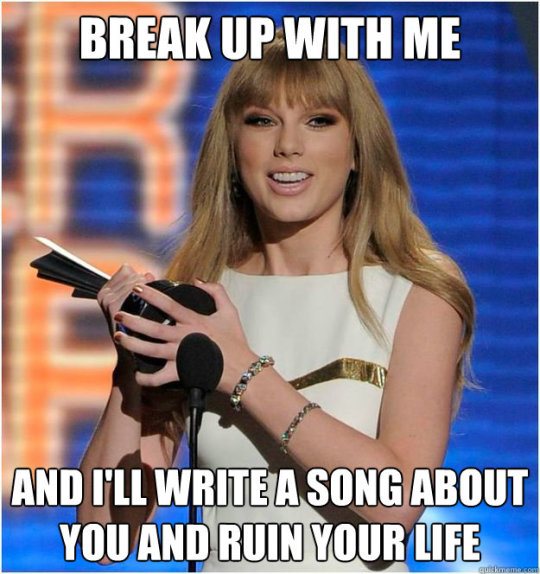
Source: http://www.quickmeme.com/meme/3qjd15
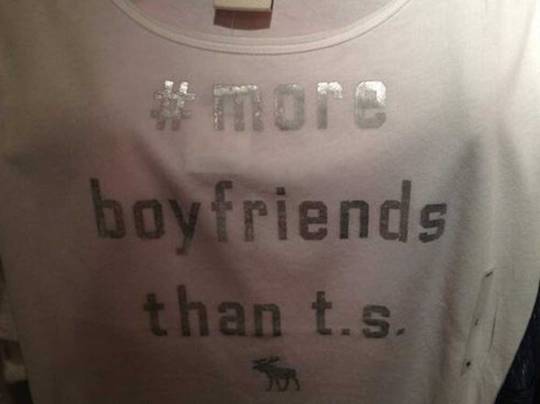
Photo: Imgur
youtube
Women in country music: Jennifer Nettles, the 2019 CMA Awards, and more
The 2019 CMA Awards was supposed to be a night of celebration and appreciation for the women of country music, however the attempt went downhill as the night went on. While many females were showcased through their performances, some felt that they could have been awarded more - particularly in one category. Entertainer of the Year is the top prize at the CMA Awards and Garth Brooks took it home this year...for the third time in four years (McKenna). This year, all the Entertainer of the Year nominees were male except for Carrie Underwood who was generally favored by most to win (McKenna). The attempt to celebrate women in country music comes after a study of country music radio was done and found that women in the genre receive far less radio airplay than their fellow male musicians. Dr. Watson of the University of Ottawa published a report in April 2019 that examined country music radio airplay for women artists and male artists from 2000 to 2018. Dr. Watson’s study found that by years-end in 2000, women held 33.3% of songs on country airplay reports but by 2018, they held only 11.3% which is a 66% decline (Watson). Even more recently, in 2018 the ratio of men to women on country radio was 9.7:1 (Watson). The most shocking finding from Dr. Watson’s study is that over the last seventeen years (883 weeks), male artists spent 749 weeks (14.4 years) at the top spot while women spent 98 weeks (1.8 years) (Moss). These findings are shocking and prompted leader of country band, Sugarland, Jennifer Nettles to make a statement at the 2019 CMA Awards. On the red carpet for the event, she made her outfit her own by writing “Play our f*@#in records please and thank you” across it with the female gender symbol displayed on her leg. When asked about her outfit, Nettles responded that she was trying to “send a message to the industry” as well as gain the public’s attention. Lack of airplay for women in country music has increasingly gotten worse but thanks to those who are paying attention, like Dr. Watson and the women of country music, hopefully improvements will be made in the very near future.
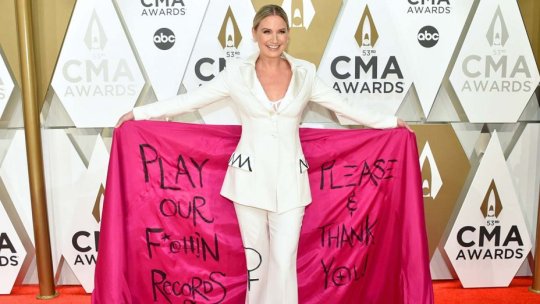
Photo: John Shearer/WireImage
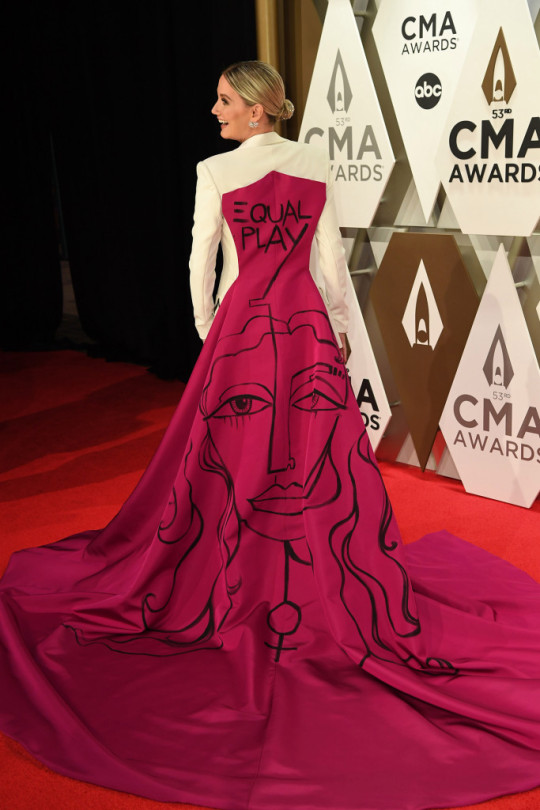
Photo: ABC
Works Cited
Atkinson, Katie. "Songs That Defined the Decade: Taylor Swift's 'Blank Space'." Billboard, 21 Nov. 2019.
Coscarelli, Joe. "Grammys President Faces Backlash After Saying Women Need to ‘Step Up’." The New York Times, 20 Jan. 2018
Dillbray, J S., and Griffin Edwards. "An Empirical Analysis of Sexual Orientation Discrimination." The University of Chicago Law Review, vol. 86, no. 1, Jan. 2019.
McKenna, Brittney. "The 2019 CMA Awards’ Attempt to Honor Women Goes Sideways." Rolling Stone, 14 Nov. 2019.
Mei, Gina. "A field guide to Nicki Minaj, Taylor Swift, and intersectionality." Hello Giggles, 22 July 2015.
Moss, Marissa R. "New Study Examines Impact of Country Radio Programming on Women." Rolling Stone, 26 Apr. 2019.
Watson, Jada E. "Gender Representation on Country Format Radio: A Study of Published Reports from 2000-2018." WOMAN Nashville, 26 Apr. 2019.
Waxman, Olivia B. "Pound the Alarm! Nicki Minaj's 'Anaconda' Video Breaks Record." Time, 22 Aug. 2014.
Zielinski, Noelle. "The 60th Grammy Awards stir up controversy." The News Record, 6 Feb. 2018.
1 note
·
View note
Text
Gender and Sexuality Portfolio Post Two: Connection to Foundational Course Concepts
Understanding an individual through a psychological lens allows researchers to deepen their studies of human cognition, emotion, and behavior. Similarly, observing and recording categorization of a specific identity is essential when examining persons as an entire group through a sociological and anthropological lens. These social sciences are flexible in the manner in which they tend to incorporate one’s identity, which includes those of a gender and sexuality scope. As we define our identities and place ourselves in society, we rediscover the true meaning behind human nature and societal expectations. Creating and enacting an identity is very complicated. There are five fundamental ideas that help us create and defy boundaries preset by society: the social construction of gender, agency, privilege, oppression, and intersectionality. To simple understand human identity, and more specifically in this paper, black feminism and womanism, is to better conceptualize these terms and relate them to one’s lived/living experience.
In relation to black feminism, we see this huge social construction of gender, that is, we see categorization of a label implemented and upheld by society (Foss, Domenico, & Foss, 2013). It can also be seen as the creation and enactment of gender. Before “doing” gender, one must define it. Society constructs what gender is, what it looks like, how people should act accordingly, and what the consequences are if one does not choose to do so. In Patricia Hill Collins’ article on black feminism and social construction (1989), we see the construction of what it means to be a White man, or rather a “Eurocentric masculinist”, opposed to being a Black woman, specifically an “Afrocentric feminist”, in America. She says that this Eurocentric masculinity can completely invalidate black feminist thought by the knowledge-validation process (p. 752). This means that because White men are considered the prestigious group of experts in society, they control the knowledge, or the narrative, distributed to others. Secondly, they remain credible for the sake of power over that knowledge. That being said, White men have control over this knowledge-validation process, which can be used to further suppress Black feminist thought by invalidating their curriculum and experience. This ideology is toxic but very realistic. Contrarily, she says that Black feminists take back this knowledge, and give out their own narrative, through shared histories, family structures, and patriarchal oppression. In other words, we take back our power by reinforcing our experiences and opposing the silence rendered onto us by Eurocentric masculinists. To connect this back to my initial paper, Black girls are opposite of the mythical norm, and therefore find power and resilience through this social construction of gender.
With social construction of any median comes agency. Agency can be defined as choice, or truly believing that one has the ability to make a change on any social, economic, political, etc. issue (Foss, Domenico, & Foss, 2013). Black feminism approaches agency in the simple fact that it is not just defined as feminism alone. It takes on a second identity (which will be addressed in depth later). Black women recognized that their needs were not being met by the original feminist movement, so they decided to create an identity that would; they took the initiative to implement change for the betterment of themselves. “Black women have always been doing the work, creating their own political and social movements that don’t depend on traditional feminism at all” (The Root, 2018). This out-group marginalization caused Black women to create and endorse their own movement for justice. The video quotes Layli Phillips from The Womanist Reader, stating that, “unlike feminism, and despite its name, womanism does not emphasize or privilege gender or sexism: rather it elevates all sites and forms of oppression…to a level of equal concern and action” (The Root, 2018). Again, black feminism and womanism are movements that began with a choice of acting outside of the norm, or in this case (white) feminism. Black feminists essentially became agents of their own cause.
Generally, there is a certain privilege that Black women have, although at times it may seem nonexistent. Privilege is the advantage or power that one from a prestigious group has over those who are stigmatized and outcasted (Launius & Hassel, 2015). This privilege may be intentional or unintentional and can easily be (un)seen in the matrix of social rule. Brittney Cooper, author of Eloquent Rage: A Black Feminist Discovers her Superpower, explains how Beyoncé is an extremely influential and powerful figure and uses her platform, or her privilege, to express her ideation of Black feminism. The author says:
In 2016, we got Lemonade. It became really clear why somebody like Beyoncé would want to have this sort of arsenal that you get from Black feminism because Black feminism helps you think about what happens when you’re the most powerful chick in the game, you’re married to one of the most powerful dudes, and he still won’t treat you right because he is intimidated by your power…Black feminism can hold that Black girls have hurts and pains that no one else has ever listened to (The Root, 2018).
Beyoncé released one of the most influential albums of 2016 expressing her right to feminism and has recently embraced Black culture and feminism simultaneously. Through privilege of her concerts, Superbowl performances, and triple platinum selling albums, Beyoncé continuously spreads her #BlackGirlMagic by giving voice to the international injustices that all women of color face.
Just as a coin has two side, there is a counterpart to privilege, and that is oppression. Oppression is prejudice and discrimination expressed towards the marginalized or “disadvantaged” group (Launius & Hassel, 2015). It should be noted that there are oppressed people within an out-group (i.e. Black women in the original feminist movement and trans-people in the #BlackLivesMatter movement). Oppression is intentional limitation placed upon all that one can do. As a Black feminist, Maya Rupert expresses why she was always anti-princess until she got a closer look of what the role of a princess really means. The initial thought is that princesses are damsels in distress and are often caught in love triangles: cliché cliché. However, as Rupert closely examined the position of a princess, she discovered that Black girls were not fit for the “typical” criteria.
She explains that White women suit stereotypes of weakness and helplessness which inevitably aligns them with the princess role, while Black women are stereotyped as naturally strong, animalistic, and their beauty has never been acknowledged nor celebrated in Western culture (Rupert, 2018). She goes on to say that, “…it hadn’t happened to me. I didn’t grow up feeling locked into the princess role, but rather locked out…Princess culture — the celebration of a fairy tale version of femininity and romance — damages girls because it offers a limited vision of the roles girls can play, but also because it offers a limited vision of which girls can play those roles” (Rupert, 2018). The author has not experienced the oppression of being the princess, rather she has experienced the limitation, or oppression, of automatically being ruled out of the role because her identity does not fit societal standards. However, there is a brightside to this nuance. Oppression in the media has changed just in the past few years. We now see Black princess: Princess Tiana from The Princess and the Frog, Princess Shuri from The Black Panther, and a real-life princess, Meghan Markle, newly crowned as the Duchess of Sussex. This ideology is a double-edged sword but, overall, gives empowerment to Black feminist even in a state of oppression.
As mentioned earlier, Black feminism embodies a double identity. Generally, the identity itself represents intersectionality. It is a double stigmatization for the simple fact that one who identifies as such is Black and a woman. Launius and Hassel describe intersectionality as a multi- facet construction of an individual’s experience, meaning that we see an overlap in one’s identity: from race/ethnicity, to age, to gender, to sexual orientation, to socioeconomic status, and so on and so forth (2015). In an article written by Holland Cotter (2017), we see the intersectionality in being a Black female artist. In 1965, a board of artists from New York, called Spiral, worked together to produce propaganda for the Black Power movement. Out of 15 African American members, only one was a woman. Black women got so tired of being overshadowed and brushed off, that they branched out and started their own artistic movement called Where We At which essentially was the foundation and development of what Black feminism is today (Cotter, 2017). Defining themselves in the duality of their identity gave them space to voice their needs and requirements of the Black community as a whole. Through this concept, we see how Black women used their agency to overcome oppression. Additionally, we can make the connection that these Black feminists used Goffman’s approach of minstrelization to play into their privilege (Coston & Kimmel, 2012).
Society tends to forget the complex yet simple organization of being a Black feminist. The identity itself is not easy; to experience everyday with (un)intentional jabs at your identity is not easy. But our requests of society are simple; we simply desire having our voices heard and lifted in the name of justice, and to hold others accountable for our suffering. That is all. That is Black feminism. To be defined and socially constructed by society, to embody the intersectionality of gender and race, to be both privileged and oppressed, and to be an agent in which to embrace more is to understand Black feminism on a micro- and macro-level.
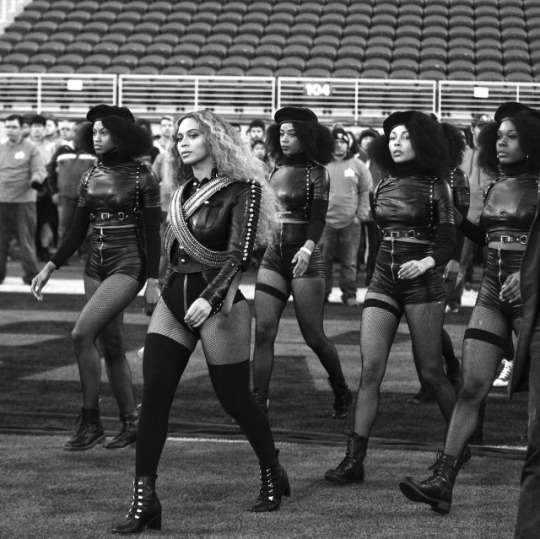
References
Alexander-Floyd, N. G. (2012). Disappearing Acts: Reclaiming Intersectionality in the Social
Sciences in a Post-Black Feminist Era. Feminist Formations, 24(1), 1-25.
Cohen, C. J., & Jackson, S. J. (2016). Ask a Feminist: A Conversation with Cathy J. Cohen on Black
Lives Matter, Feminism, and Contemporary Activism. Signs: Journal of Women in Culture & Society, 41(4), 775-792.
Collins, P. H. (1989). The Social Construction of Black Feminist Thought. Signs: Journal of
Women in Culture & Society, 14(4), 745-773.
Coston, B. M., & Kimmel, M. (2012). Seeing Privilege Where It Isn’t: Marginalized Masculinities
and the Intersectionality of Privilege. Journal of Social Issues, 68(1), 97–111. https://doi.org/10.1111/j.1540-4560.2011.01738.x
Cotter, H. (2017, April 20). To be Black, female, and fed up with the mainstream. The New
York Times. Retrieved from https://www.nytimes.com/2017/04/20/arts/design/review-we-wanted-a-revolution-black-radical-women-brooklyn-museum.html
Cox, A. (2014). The Body and the City Project: Young Black Women Making Space, Community,
and Love in Newark, New Jersey. Feminist Formations, 26(3), 1-28.
Deblaere, C., & Bertsch, K. N. (2013). Perceived Sexist Events and Psychological Distress of
Sexual Minority Women of Color: The Moderating Role of Womanism. Psychology of Women Quarterly, 37(2), 167-178.
Foss, S. K., Domenico, M. E., & Foss, K. E. (2013). Gender Stories: Negotiating Identity in a Binary
World. Long Grove, IL: Waveland Press.
Jackson, S. J. (2016). (Re)Imagining Intersectional Democracy from Black Feminism to Hashtag
Activism. Women's Studies in Communication, 39(4), 375-379.
Jones, L. V. (2015). Black Feminisms: Renewing Sacred Healing Spaces. Affilia: Journal of Women
& Social Work, 30(2), 246-252.
Launius, C. & Hassel, H., (2015). Threshold Concepts in Women’s and Gender Studies: Ways of
Seeing, Thinking, and Knowing. New York, NY: Taylor & Francis.
Morton, B. (2016). ‘You can’t see for lookin’’: how southern womanism informs perspectives of
work and curriculum theory. Gender & Education, 28(6), 742-755.
Nyachae, T. M. (2016). Complicated contradictions amid Black feminism and millennial Black
women teachers creating curriculum for Black girls. Gender & Education, 28(6), 786-806.
The Root. (2018, April 12). Breaking down Black feminism [Video file]. Retrieved from
https://www.youtube.com/watch?v=i5Sl_Fu47js
The Root. (2018, March 6). Why feminism fails Black women [Video file]. Retrieved from
https://www.youtube.com/watch?v=t9KMtf_e_ew
Rupert, M. (2018, May 12). How a Black feminist became a fan of princesses. The New York
Times. Retrieved from https://www.nytimes.com/2018/05/12/opinion/sunday/royal-wedding-princess-race.html
Shaw, J. B. (2015). I don't wanna time travel no mo": Race, Gender, and the Politics of
Replacement in Erykah Badu's "Window Seat. Feminist Formations, 27(2), 46-69.
Smith-Jones, S. E., Glenn, C. L., & Scott, K. D. (2017). Transgressive shades of feminism: A Black
feminist perspective of First Lady Michelle Obama. Women & Language, 40(1), 7-14.
1 note
·
View note
Note
For the trans ask game, can I cheat and just say all of them.. because I am a very curious person and I want to know it all (or just the ones you feel like doing!)
Aaah yay thank you!!! I really loved this ask memeHow did you choose your name?So I had been using a different name for like a year when I first came out and I just wasn’t feelin it y’know??? Jason is close to my dead name so I knew my parent would appreciate that cause they love my dead name a lot. But also (and this is dumb forgive me) Jason Todd and Jason Grace were characters that I loved and identified with and I just sorta felt drawn to the name :)What gives you the most dysphoria? (Acknowledging that not all trans people experience dysphoria)Uuuuugh 100% how short I am 🙄 I hate it so muchDo you have more physical dysphoria or more social dysphoria? Physical :P I’m short with a phat ass and thicc thighs and it’s a messWhat do you do to perform self-care when you're feeling dysphoric?This is probably more aggressive than typical self care but I force myself I stare at myself in a mirror and find every masculine thing about myself and focus on thatWhat was the first time you suspected you were transgender?I was around 7 I think and I was at the lake with my parents and a bunch of their friends. So my mom and all the wives were at the front of the boat and my dad and all the husbands were off the back of the boat! For some reason I identified a lot more with the men of the group and I have this weirdly clear memory of being really jealous of their armpit hairWhen did you realize you were transgender?I didn’t have a word for it but there was an episode of House where a little “girl” came in because of abdominal pain or something and they found out the kid was intersex and gave them the choice to live as a boy because of their genitals being more “male” or whatever and they did it! And I remember watching that as a kid and hoping that I would wake up one day and have a penis or a doctor would one day be like oh whoops! We messed up! You’ve been male this whole time! I was probably like 8 or 9 when that happenedWhat is your favorite part of being transgender?Belonging to a community where we are all united by this similar experience :) it’s like a familyHow would you explain your gender identity to others?I’m a guy like 100% How did you come out? If you didn't come out, why do you stay in the closet? Or what happened when you were outed?I slowly came out over a few years. I sat my mom down and told her and we cried and it was a mess, I sent my dad and step mom a 80+ slide PowerPoint, I sent emails to certain people! Fortunately I’ve never been outedWhat have your experiences with packing or wearing breast forms been?I ordered a packer a few years ago and it was so bulky and awkward and I just looked like I had a huge boner so I never worse it again 😂What are your experiences with binding or tucking?I’ve been binding since high school and my ribs are a little warped because of it :P luckily my chest is already pretty small (like a cup small) so I’ve gotten away with not binding in public if I just wear a big hoodie or shirt. Do you pass?About 99% of the time I do! But every once in a while I get called ma’am and I wanna dieWhat (if any) steps do you want to take to medically transition?I want top surgery so bad I wanna screamHow long have you been out?For about 8 years :)What labels have you used before you've settled on your current set?Ugh all of them basically! Lesbian, gay, pan, ace, bi. I’m the entire acronym lolHave you ever experienced transphobia?God yes 🙄 I had a boss at a job in college who would dead name me constantly and when I’d correct him he said if I wanted to “play make believe” I could do it on my own timeWhat do you do when you have to go to the bathroom in public?I’ve been exclusively using the men’s room for about 4 years nowHow does your family feel about your trans identity?Well I haven’t spoken to my mom in 3 or 4 years soooooooooBut my dad is cool with it!!Would you ever go stealth, and if you are stealth, why do you choose to be stealth?I don’t think I know what this meansWhat do you wish you could have shared with your younger self about being trans? I wish I could just tell my self what being trans is cause my biggest problem as a kid was that I just had no idea this existed Why do you use the pronouns you use?I use he/him because they’re traditionally masculine or male and they make me feel like a man :)Do your neurodivergencies affect your gender?Sometimes my anxiety is like lmao you’re faking for attention or whatever and I’m like ???? I’m literally not What's your biggest trans-related fear?Being killed first off. But on a less extreme level, I’m terrified of being with a person romantically and they just treat me like a girl or like I’m not a real boy and tbh this has already happened to me a couple times. I just don’t want it to happen againWhat medical, social, or personal steps have you already taken to start your transition?I’ve been on T for three years now, I’ve been going my Jason for about 6 years, I present as male 100% of the time and in all of my work and school stuff everyone calls me jason and uses he/himWhat do you wish cis people understood?That I was never a girl, I wasn’t “born a girl” and then became a boy. I was born a boy but because of my body people just assumed I was a girl but I wasn’t and never was and never will be. Also you don’t have to be bi or pan to be attracted to me. If you’re attracted to men you can be attracted to meWhat impact has being trans affected your life?I’ve lost most of my family and I’m low key terrified all the time about being hurt or rejected because of itWhat do you do to validate yourself?Same mirror thing lolHow do you feel about trans representation in media?Well most of it is hell problematic and we deserve so much better. As a trans actor it especially pisses me offWho is the transgender person who has influenced you the most?I read Chaz Bono’s book my freshman year of high school and it really helped me understand a lot of things when I was first coming outHow are you involved with the trans community, IRL or online?Not as much as I would like to be :(How do you see yourself identifying and presenting in 5 years? Hopefully by then I’ll have had top surgery! Still presenting and identifying the way I do nowWhat trans issue are you most passionate about?Free or affordable access to medical transition stuff like hormones and surgeries. Also as an actor trans representation in the mediaWhat advice would you give to other trans people, or what message would you like to share with them?No one is worth your comfort. If someone stops loving you because of your identity then they don’t love YOU they love their idea of youHow do you feel your gender interacts with your race, disability, class, weight, etc. from the perspective of intersectionality?I’m thin and white and I recognize my privilege with thatWhat, if any, is the difference between your gender identity and your gender expression?I love makeup and “feminine” fashion and shit like thatDo you feel more masculine, feminine, or neither?Masculine but I love fem things so 🤷🏻♂️What is your sexual and romantic orientation, and what are your thoughts on it?I’m bi with a leaning towards men! I dunno it’s kinda whateverIs your ideal partner also trans, or do you not have a preference? I’ve dated two trans people and one cis persona and I totally preferred dating trans people just because they understand feeling cis people just dontHow did/do you manage waiting to transition? God it was horrible. I found my diary from when I was like 17/18 and all it was was me talking about how if I don’t get to transition I’d dieWhat is the place (blog, website, forum, IRL space) you get most of your info on being trans or on trans related things? Tumblr probably, also Twitter. Do you interact with other trans people IRL?I have one whole trans friend that I actively talk to :’) but I really value her friendship so muchAre you involved in any trans-related activism?Currently no but when I move to New York I plan on being more involved!Free space! Answer any question you want, or make up your own question to answer.When I came out to my dad I slept for 9 hours and he said it was like I could finally breath relax and rest after holding everything in for so long
5 notes
·
View notes
Text
Throughout this semester, a topic that stood out to me was intersectionality. This especially caught my attention when we read Chinelo Okparanta’s novel, “Under the Udala trees”. With this in mind, I will be discussing violence in intersectionality, discrimination, and my personal experience with witnessing violence in intersectionality.
Intersectionality is defined by Merriam-Webster as, “The complex, cumulative way in which the effects of multiple forms of discrimination (such as racism, sexism, and classism) combine, overlap, or intersect especially in the experiences of marginalized individuals or groups”. In other words, the effect that discrimination has on certain groups that are especially discriminated against. As a white female, I find myself being discriminated against often. Whether it be because of my looks, age, race, and even financial status. As women, I feel that this is something we all have to deal with at least once in our life. What frustrates me, personally, is that in my opinion, sex and race are two of the most prominent factors in intersectionality and I believe that women of color are the most affected by violence in intersectionality. I read an article during this class that explained how race is a social construct. Reading this article really made me wonder why women of color are treated so differently, especially when I was reading these wonderful works that the women had written. The author of the article, Angela Onwuachi-Willig wrote, “Race is not biological. It is a social construct. There is no gene or cluster of genes common to all blacks or all whites. Were race “real” in the genetic sense, racial classifications for individuals would remain constant across boundaries. Yet, a person who could be categorized as black in the United States might be considered white in Brazil or colored in South Africa”. Therefore, in my eyes I see a world that has created a prejudice to certain people because it’s just what they felt they had to do. On top of that, women are also seen as a minority to some. In the Neolithic era, all women were caretakers of the children who also farmed and protected their home while their husbands were out hunting. Women are the reason that we’re all prospering and obviously alive. So I cant help but wonder when this idea that they are somehow less of a person than men came about. Between the idea that women of color are somehow different in their humanity and that women are less important than man, it’s easy to see how ignorant people can be so careless when it comes to equality.
When I wrote my paper analyzing “Under the Udala Trees” I found myself unable to stop my brain from getting my hands to stop typing. The story truly spoke to me in a way that lifted me up but also broke my heart. In the story, the main character must deal with homophobia, religious differences, domestic abuse, and more. This class has truly opened my eyes when I thought they were already open, learning stories about these strong, amazing women who have been to hell and back make’s issues in today’s society all more real. Specifically, the main character, Ijeoma, was forced to suppress her sexuality and when it was discovered that she was in love with a member of the same sex, religion was forced upon her, her friends were killed, and the man who became her husband inflicted physical, mental, and emotional violence in her. While this story may be some words in a book to some people, things like this are happening in real life every day. If I could convince every human on the planet to at least take this class and educate themselves on what women who have dealt with these things in history have been through, I would and there is no doubt in my mind that it would make a huge change in this world. This is where violence in intersectionality comes in. If you take these ideas about women of color being unequal and factor in people who feel they are better than these women, you get the notion that those people feel they can push the women around. When Ijeoma’s husband threatened her with violence, he must have truly thought in that moment that he was so much better than her because of his “status” as a human. When people with violent tendencies get into this mindset, there is absolutely no limit to what they can do. The Institute For Women’s Policy Research stated, “More than four in ten Black women experience physical violence from an intimate partner during their lifetimes. White women, Latinas, and Asian/Pacific Islander women report lower rates. Black women also experience significantly higher rates of psychological abuse—including humiliation, insults, name-calling, and coercive control—than do women overall. Sexual violence affects Black women at high rates. More than 20 percent of Black women are raped during their lifetimes—a higher share than among women overall. Black women face a particularly high risk of being killed at the hands of a man. A 2015 Violence Policy Center study finds that Black women were two and a half times more likely to be murdered by men than their White counterparts. More than nine in ten Black female victims knew their killers”. I made sure to include all of these statistics in length because they need to be acknowledged. Almost everything we’ve read from female authors this semester includes a portion where they mentioned the trials and tribulations they went through to get to the place where they are, regardless of race but still so unbelievably appalling. I can only pray that these statistics are better recognized and improved.
I live in a rural, conservative, small town area filled with closed minded people. I often take a lot of heat for attending High Point, with people calling it a “rich kid liberal school” among other things. However, I couldn’t be happier to announce that I go to High Point because I have the ability to learn from and among some of the most welcoming people I’ve ever met. It’s a different story where I live though. Racism is so prominent and absolutely horrifying. A few years ago, I was dating a guy who most would consider “redneck”. On top of that, I was also in his friend group. We would go for bonfires, mudding, truck shows, the classic country boy stuff. During all of this however, any time we would pass a person of color, the men in that group would quietly refer to them with a derogatory, horrifying name that shocked me every time. At first, I kept quiet and didn’t say anything, which was obviously the wrong thing to do and a big factor in this societal issue. After some time though, I began to speak up and explain why those words were wrong and hurtful, to which they often responded with “When did you become a snowflake libtard?” I hear this question in my head on a daily basis. The group refused to acknowledge people of color and eventually I became aware of an incident where a few boys were cut off by a black woman on the road and followed her home, waited until she was inside, and smashed the woman’s car windows, doors, and ripped up the seats. The boys were laughing when they told me this story and that instance changed my life forever. I broke up with my boyfriend, left the friend group, and called the police immediately and two of the men in that incident served 6 months in jail which personally I think is not enough. To this day I still receive hate messages about it, and I can’t imagine it’s helped their moral values at all. I tell this story because it’s one instance that I’ve witnessed as a white woman, someone who doesn’t experience severe discrimination everyday in much worse ways and it still changed my life. When listening to Chimamanda Ngozi Ndichi’s Ted Talk, she mentioned that many of her peers were shocked by her experiences. They had formulated these ideas in their heads about what her home, Nigeria, was actually like based on things they had seen through the media. The boys I dealt with all those years ago would have looked at her the exact same and most likely in a more negative manner. What she dealt with was an instance of intersectionality being played out and hopefully her peers were able to learn from her as a human not to expect less of someone because of where they come from.
In conclusion, this class has truly opened my eyes to so many issues present in our world. I fully believe that along with me, many others who have taken this class have an entirely different view on women of all genders, races, shapes and sizes. The author’s we’ve learned from this semester have definitely had people question, if not change their actions after hearing their stories, inspiring all of us to make this world a better place.
0 notes
Text
A Small Handful of My Own Privileges and What They Mean
1.) If I were to get pulled over or even arrested by a cop, my biggest worry would just be that I could get a ticket or fined; I wouldn’t have to worry that my life could be in danger.
2.) Whenever I apply for a job, there will probably be no need to for me to ever “whiten” my resume.
3.) I will most likely never be judged or victimized because of my sexuality because I am straight.
4.) As a straight person, I will never have a need/reason to “come out” because heterosexuality is the assumed “default” state of any person in our society. That is, people only need to specifically inform anyone of their sexuality if they are not straight.
5.) Likewise, my gender identity is almost utterly conformant to society’s standards, meaning I will never need to specifically explain my gender other than by saying that I am a man.
6.) I will probably never be victimized due to my gender identity, nor how I choose to express it, because it agrees with societal standards.
7.) Because I don’t understand the experience of being gender-nonconforming in any way (because I myself do not identify so), I have the privilege of not even knowing the extent of struggle that may be involved with it.
8.) Because of my appearance, I will never be assumed as a foreigner in the United States.
9.) Because of the financial conditions in which I grew up, I never had to worry about where my next meal would come from.
10.) It was guaranteed that I would be able to attend college because of the opportunities I was essentially born with.
11.) I have never been accused of speaking incorrectly because of my dialect or vernacular.
12.) I have never felt self-conscious about the texture of my hair, nor even considered that I should because there is no bias against fairly straight hair.
13.) I can hold hands or show affection to my girlfriend in public; some people might want us to “get a room,” but it doesn’t compare to the opposition against non-heterosexual public affection.
14.) I am lucky enough to have a U.S. birth certificate and social security number, as well as countless other privileges that come with being a US-born US citizen.
15.) Likewise, I’ll never worry that my citizenship status will be discovered, because there would be no grounds on which to deport me or otherwise cause me anguish over it.
16.) I have always had a safe, constant home because of the family I was born into.
17.) I do not have any disabilities, meaning my ability gives no one any grounds on which to judge or discriminate against me.
18.) Furthermore, I have never had to worry whether a building or place is accessible to me accounting for my ability level. For example, whether a door has stairs or a ramp leading up to it makes no difference to me, whereas it can be incredibly important for other people.
19.) Since I speak English, language barriers not just in the United States but even abroad have not been much of a problem for me so far.
20.) My schooling has always been relatively high quality – nothing extraordinary, but at the very least the schools I have gone to all had enough resources like computers and other supplies to go around.
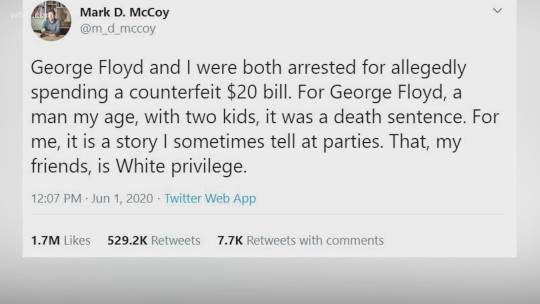
Having thought about all of these privileges, it is safe to say that they have had a huge influence on my life. They have made things vastly easier for me compared to those that do not have them. If I was stripped of all of these privileges, then my life would undoubtedly be much more toilsome. For instance, I would need to work (probably multiple jobs) every single day just to make ends meet, and those jobs would need to be ones that come with no possibility of me being targeted for my legal status, race, gender, and so on. Additionally, I probably wouldn’t even have the time or opportunity to continue going to school as I am now.
It would be a difficult task to try to undo the lack of privileges that others face, but one thing would be to call to attention the degree of injustices in the world, and how these injustices can multiply when they intersect in one person. As Peggy McIntosh writes in “White Privilege: Unpacking the Invisible Knapsack,” “To redesign social systems we need first to acknowledge their colossal unseen dimensions” (372). Speaking of intersectionality, it is worth mentioning that I am not marginalized in practically any way because of my race, identities, abilities, class, or so on. The closest I come to being marginalized is at times when I am considered stupid or inferior for being an American, or when others purposely speak a language that they know I don’t speak while I am in their company, or when I mention that I am of Italian descent and people ask if I talk with my hands or they try to do Italian accents. However, those are informal things that do not match the systemic and/or life-threatening situations mentioned in the list above.
Source:
McIntosh, Peggy. White Privilege: Unpacking the Invisible Knapsack (UNM Learn)
Image:
https://media.wfaa.com/assets/WFAA/images/71000e77-d189-4adb-8faf-2e33e3a83b47/71000e77-d189-4adb-8faf-2e33e3a83b47_1920x1080.jpg
0 notes
Text
13 Podcasts about Sports & Intersectionality Every Athlete and Sports Fan Should Listen To
These podcast episodes range from short, ten-minute segments to hour-long deep dives, but what they have in common is that all of them explore an issue and how it intersects with sports in an interesting and thought-provoking way.
Trigger warnings listed at the end of episode descriptions (but please let me know if I missed anything).
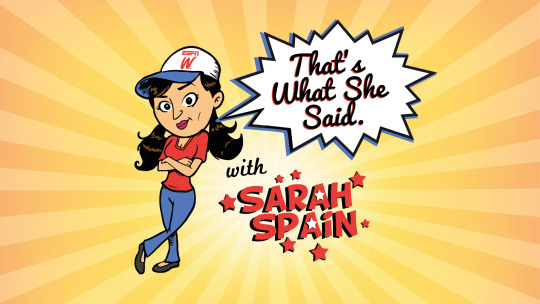
That’s What She Said with Sarah Spain, “Sexism in Sports”
Sarah Spain talks to all kinds of guests on her show, many of them athletes, but I particularly recommend her episode “Sexism in Sports”, where she talks to women about sexism they’ve faced in sports. TW: discussion of sexual harassment.
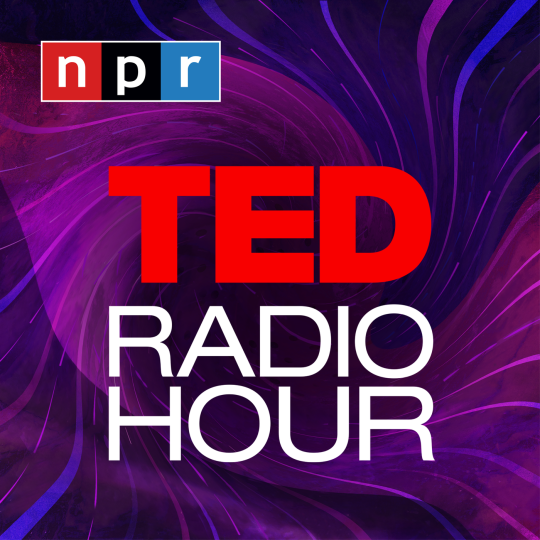
TED Radio Hour, “Pat Ferrucci: How Does the Language of Sports Journalism Reveal Racial Biases?”
In his TED talk, journalism professor Pat Ferrucci talks about how, even though sports is supposed to be “the great equalizer,” the language used by sports journalists reveals their prejudice and makes it harder for athletes of color to succeed.

Radiolab, “Gonads, Dutee”
This fascinating episode features an interview with Dutee Chand, a world-class runner from India who was disqualified for failing a “gender test,” and also delves into the history of female athletes at the Olympics and the problems with various tests for “gender.” TW: description of invasive tests by doctors, discussion of misgendering of women athletes, and discussions that assume that “biological” (assigned at birth) sex and gender are the same thing.

The Outside Podcast, “XX Factor: How the Sports Bra Changed History”
The Outside Podcast has many interesting episodes, but a personal (surprising) favorite is one about “how the sports bra changed history.” You may have not given much thought to the sports bra, but its invention was actually a huge deal, completely revolutionizing women’s participation in sports!

The Takeaway, on Trans High School Athletes
This segment for WNYC’s “The Takeaway” explores the obstacles that trans teens face in high school sports. Although it’s only about 10 minutes long, it does a great job examining the issues involved, and the ESPN reporter who the host talks to, Katie Barnes, is non-binary, and has written about trans athletes for ESPN. TW: discussions of transphobia.
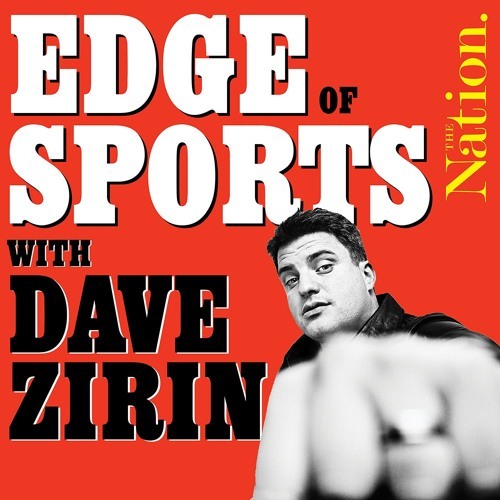
The Edge of Sports with Dave Zirin, “Maya Moore Talks Mass Incarceration”
This podcast, by The Nation magazine, focuses on “where sports and politics collide.” Almost any episode from this podcast would be applicable to this blog, but I especially recommend “Maya Moore Talks Mass Incarceration,” in which the WNBA star talks about her inspiring work to raise awareness about prosecutorial misconduct and other issues in the justice system.

Disabled Sports USA’s Challenge Extended, “Paralympian Tricia Downing”
Challenge Extended is another podcast where every episode is great and relevant to this list! One that I especially enjoyed is this interview with Tricia Downing, who was the first female paraplegic competitor in an Ironman triathlon, has completed over 100 races, and is also a disability rights advocate.
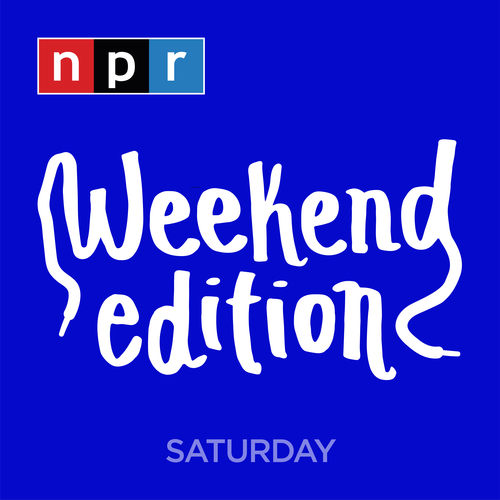
NPR Weekend Edition, “Olympic Runner Who Once Competed Against Caster Semenya Weighs In On Testosterone Ruling”
In this short segment, Madeleine Pape, a former Olympic runner who once competed against Caster Semenya, talks about why the exclusion of female athletes with high levels of testosterone is unfair, and how homophobia, racism, sexism, and other issues play into these discussions.

Code Switch, “A Thousand Ways to Kneel and Kiss the Ground”
This episode of Code Switch, a podcast hosted by journalists of color that features all kinds of conversations about race, reports on the 2018 NFL policy to punish players who kneel during the national anthem, looking back on how this fits into the history of sports and black political protest.
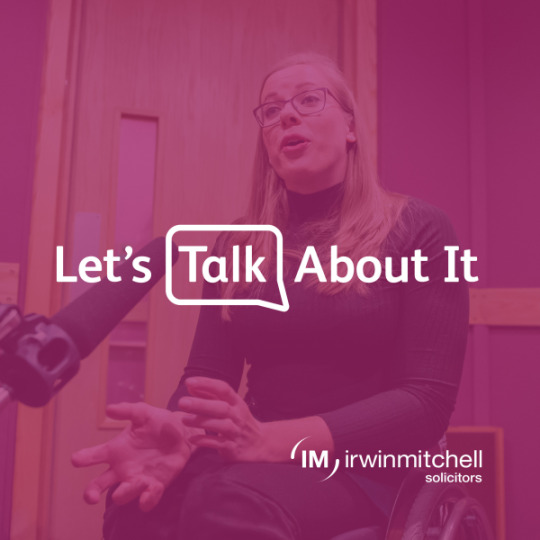
Let’s Talk About It, “Sport”
The very first episode of Irwin Mitchell’s podcast Let’s Talk About It, which discusses what it’s really like living with a disability, is all about sports. The host talks to wheelchair tennis star Alfie Hewett, Paralympic gold medalist Hannah Cockroft, and “amateur action man” Ed Buckley, who recovered from a serious brain injury. Note that Irwin Mitchell is a for-profit business, and this is part of their “campaign to get more people into disability sport,” some aspects of which tend towards what disability activists sometimes call “inspiration porn.” However, I think this particular podcast episode is great, and it focuses on #ownvoices representation.
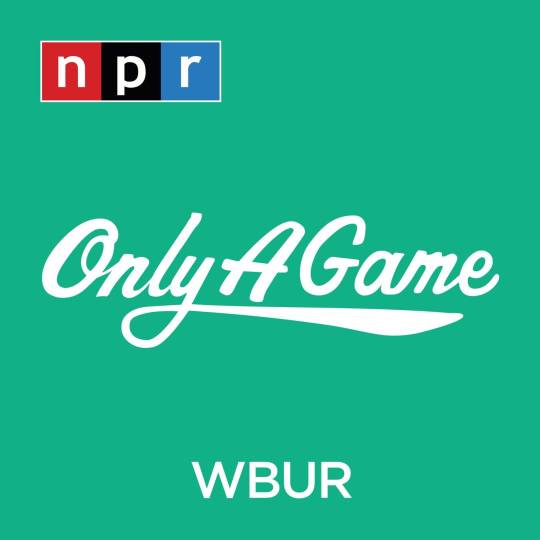
Only A Game from NPR, “[…] U.S. Gymnast Speaks Out […]”
Only A Game is a sports news and issues podcast that tackles multiple topics each episode, so it’s hard to point to a specific one that’s most relevant, but check out this recent episode and skip to minute 20:32 to hear a heartbreaking and essential conversation with gymnastics star Jennifer Sey about abuses in the sport. She also has a book, Chalked Up, about her experiences. TW: discussion of emotional/verbal abuse (including body shaming & restrictive diets and resulting in injury & suicidal ideation) & sexual abuse.

Laughter Permitted with Julie Foudy, “Inside the US Soccer Equal Pay Fight”
Soccer-star-turned-commentator Julie Foudy hosts Laughter Permitted, an interview podcast where she has intimate and funny conversations with other female athletes. This fantastic episode breaks that mold and has Foudy speak candidly about the US Women’s National Team’s fight for equal pay and how the US Soccer Federation’s defense against the suit relies on sexism.

Champions of Change: The RISE podcast, “Celebrating PRIDE Month: Track & Field athlete Nika Ouellette”
Pretty much any episode of this podcast, which discusses issues of race, social justice, and community-building in sports, would be relevant here, but a personal favorite of mine is one from June 2019 with out lesbian javelin thrower Nika Ouellette, who’s an ambassador for Athlete Ally, an organization that champions LGBTQ+ equality in sports. She talks about diversity and intersectionality in sports and the role that the athletic community should play in encouraging inclusivity for LGBTQ+ athletes.
[The rights for all the logos in this post are reserved by their respective podcasts.]
#podcasts#sports#sportspodcasts#athletesofcolor#pocathletes#queerathletes#lgbtq community#equalpay#sexism#disabilitysport#ownvoices#activism#athleteactivism#justice reform#metoo#caster semenya#julie foudy#pride#gymnastics#olympics#uswnt
0 notes
Text
Leveling the Intersections
When I first heard the term “intersectional” in my Women’s Rights class, the first thing that came to mind was a stoplight. I immediately thought of a literal street intersection because I had never heard the term used in any other way before. However, I learned that the term was coined by Kimberle Crenshaw after reading her essay “Mapping the Margins.” I really enjoyed this essay because she didn’t just give a definition but she gave really insightful examples of how our society needs to recognize those identities of more than one kind face issues all in their own ways. One really great quotes she expresses her point in is, “The failure of feminism to interrogate race means that the resistance strategies of feminism will often replicate and reinforce the subordination of people of color, and the failure of antiracism to interrogate patriarchy means that antiracism will frequently reproduce the subordination of women” (Crenshaw 1252). She really unpacks a lot within this statement by criticizing the actions of feminism by not including the question of race as a means of oppression and inequality. Feminism is not just for women to be equal to men, but for all women of all identities, including sexuality, race, religion, socioeconomic status, etc. to be equal. Without taking into question all of these identities, and more, then women will never have the equality that feminism aims towards.
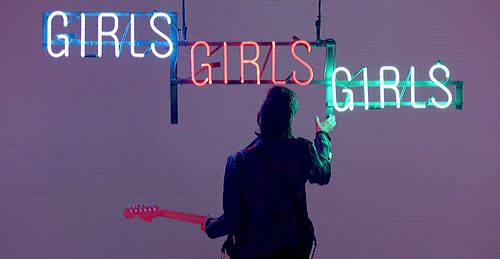
Of course, all of this makes us question how that has been implemented into society today and if we see a change or not. It would be a miracle to say that we are completely intersectional because we still are not there yet. When Beyoncé’s song, “Formation,” was released everyone went insane… in their own way. It was like a breakthrough for black women as it was “unapologetic” and representative of Beyoncé’s cultural upbringing. Vanessa Willoughby wrote an op-ed titled “Beyoncé’s ‘Formation’ is a Celebration of Unapologetic Blackness,” in which she highlights the strengths of Queen Bey’s song. She claims that the song “celebrates the very traits that white supremacy has demonized and rejected” because Beyoncé appreciates black hair. However, the role white supremacy has played by “demonizing” black people and their culture go way deeper than that (Willoughby). But, when you really think about it does Beyoncé really embrace her natural hair? She always has it perfectly styled and bleached most of the time when she is in the public eye.
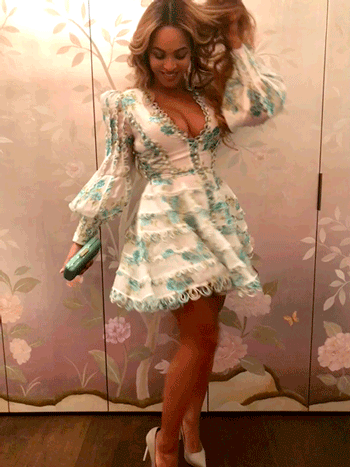
In contrast, Yaba Blay’s op-ed, “On ‘Jackson Five Nostrils,’ Creole vs. ‘Negro’ and Beefing over Beyoncé’s ‘Formation,’” gave a different opinion to the ”intersectionality” that the song and music video displayed. Just like many others, she was all for the music video for “reppin’ New Awlins hard,” until the heat of the debates took off. The issue of colorism was highly criticized in the video because of how Beyoncé uses her identity as a woman. Her lyrics, “you mix that Negro with that Creole make a Texas bamma” made many cringe and other frustrated with the misrepresentation of identity. Within the term of intersectionality, anyone can be anything and have more than one intersecting identity, but when it becomes confusing and misrepresented, it is not intersectional anymore. Beyoncé was identified by L’Oreal in an ad as African-American, Native American and French which raised the question of how all of the identities are just being thrown all over the place. It is an issue because there is a big difference in being Negro and Creole and many have taken offense to it as Blay explains in her article. By being dark brown and not traditionally Creole, but claiming yourself to be is seen as a rejection of blackness. So when Beyoncé claims herself as both Creole and Negro in celebration, it brings up the question of a historical narrative that has since been debated. Looking through the intersectional lens of colorism, Beyoncé was not successful in relating to other women to embrace her blackness.
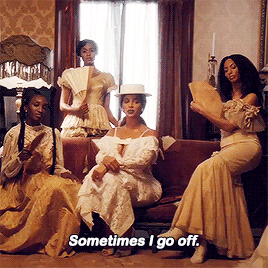
Just like in many other cases we have seen a failure of representation within true identities in many aspects of our lives. Think of how many ads in your lifetime you have watched and just sit there thinking “WTF did I just watch?” For some of us, we may have seen it a lot and for others, not so much. Depending on your own identity and ability to think intersectionally, you may recall Bloomingdale’s date rape ad that was hugely offensive. On the cover, it features a woman rolling her head back and laughing towards the left while on the right is a man creepily checking her out next to her with his lips pinned straight. In between the two are the words, “Spike your best friend’s eggnog when they’re not looking.” The company attempted to stand out and be funny during the holidays but was a huge failure in doing so. For a woman to see this type of ad is absolutely frightening thinking that your drink could be tainted and also to the fact that Bloomingdales thought it was even okay to put this out into society. For other individuals that are victims of date rape, this would have been horrifying because of the possibility of it being a trigger to what had already happened to them. It was definitely a step back from what societal expectations should be going towards. Another issue with the ad, if you were to be looking at it with an intersectional lens, it not only glorifies date rape but also the dominating male role by enforcing the gendered power dynamic that women are beneath men and men have the ability to control women in this way. Absolutely disgusting, I know. You must always think of the implications that words may have to people of all identities.
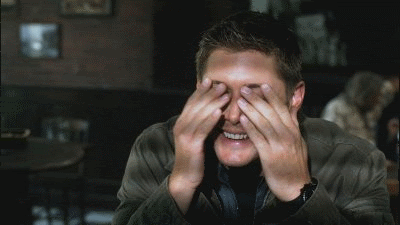
There are many issues in which some of us would have never thought of as un-intersectional and might have thought of something being a successful representation of identity. The ignorance and privilege of the lenses within your identity can lead you to miss out on the bigger picture if you are not always thinking intersectionally. It is not easy and will take practice making sure that your words and intentions are accepting towards all individuals.
Citations:
Blay, Yaba. “On 'Jackson Five Nostrils,' Creole vs. 'Negro' and Beefing Over Beyoncé's 'Formation'.” Colorlines, 8 Feb. 2016,
https://www.colorlines.com/articles/jackson-five-nostrils-creole-vs-negro-and-beefing-over-beyonces-formation
Crenshaw, Kimberle. “Mapping the Margins: Intersectionality, Identity Politics, and Violence against Women of Color.” Stanford Law Review, vol. 43, no. 6, 1991, pp. 1241–1299. JSTOR.
Paquette, Danielle. “What a Creepy Bloomingdale's Ad Tells Us about America's Understanding of Rape.” The Washington Post, WP Company, 12 Nov. 2015.
https://www.washingtonpost.com/news/wonk/wp/2015/11/12/what-a-creepy-bloomingdales-ad-tells-us-about-americas-understanding-of-rape/?utm_term=.499d0293a300
Willoughby, Vanessa. “Beyonce's ‘Formation’ Is a Celebration of Unapologetic Blackness.” Bitch Media, 10 Feb. 2016,
https://www.bitchmedia.org/beyonce-formation-video-black-lives-matter-feminism-hearken
0 notes